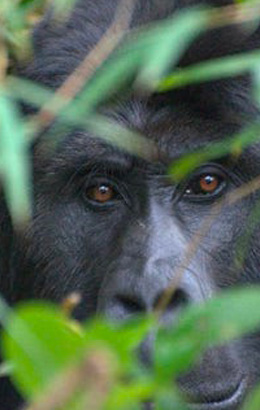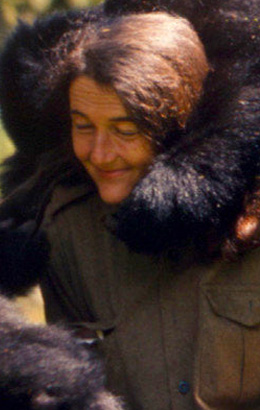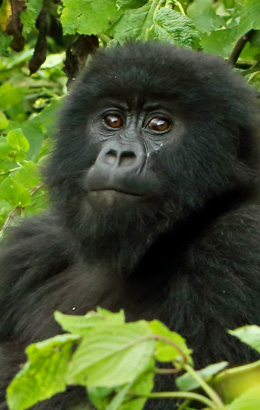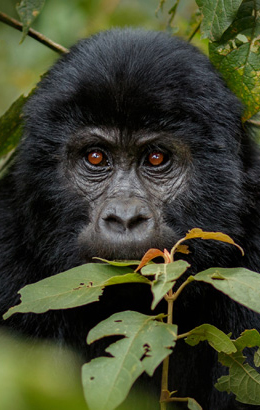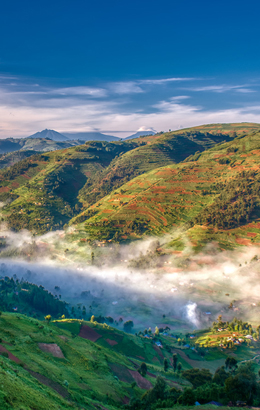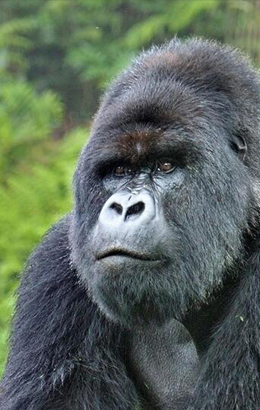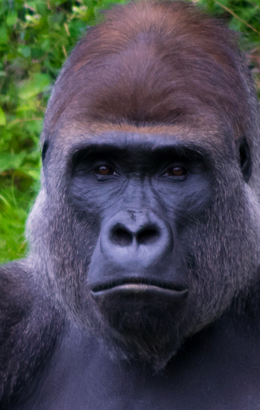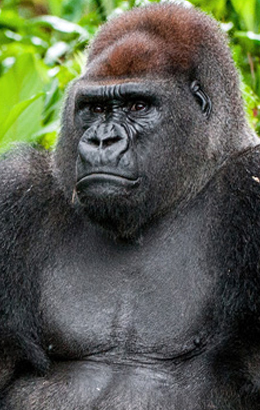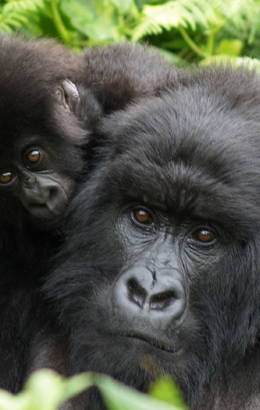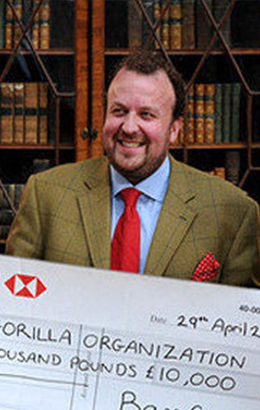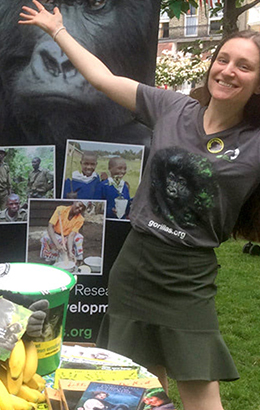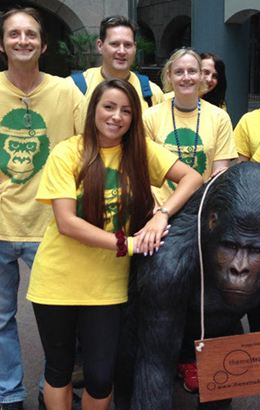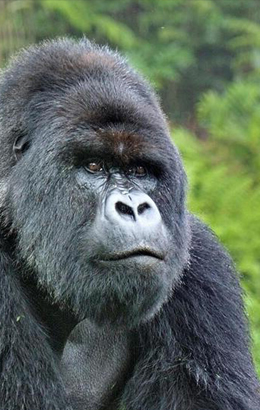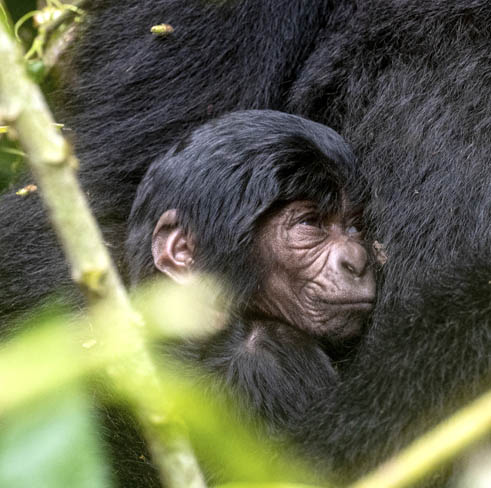In honour of International Women’s Day, this year we are paying tribute to all the incredible women that are at…
“Silverback” Film Puts Spotlight on Kahuzi Biega’s Charismatic but Endangered Gorillas
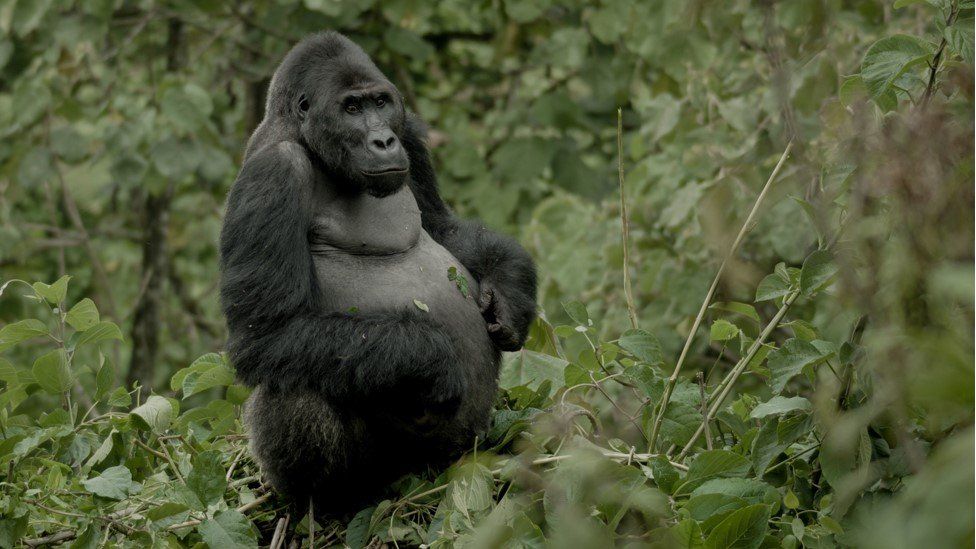
The eastern lowland gorillas of the Kahuzi Biega National Park have been pushed to the very brink of extinction by war, habitat loss and poaching. Now, a BBC documentary “Silverback” has shone the spotlight on efforts to save them, one gorilla at a time, by opening up the possibility of bringing tourists to the trouble region.
The 90-minute long film “Silverback” produced by Off the Fence, follows award-winning wildlife cameraman Vianet Djenguet as he documents a gruelling but vital mission to ‘habituate’ the notoriously protective silverback Mpungwe in the Kahuzi Biega National Park in eastern DR Congo. Earning the 250kg gorilla’s trust was an essential step for getting his whole family used to the presence of humans, beginning with researchers and rangers. Both Djenguet and Mpungwe know what is at stake. A native of the region, the cameraman has seen first-hand the misery caused by continuous wars between 1996 and 2003. The silverback, meanwhile, was orphaned in 1996, as militia killed gorillas for bushmeat. The numbers of eastern lowland gorillas living in the National Park plummeted from around 630 to just 170 today.
Gorilla Organization Director Jillian Miller says: “Kahuzi-Biega is a magical place and the gorillas living there are truly charismatic, with their characteristically thoughtful expressions and strong family ties. The Silverback documentary is a stunning homage to the region and a powerful testimony to the rangers and conservationists fighting against the odds to keep gorillas safe.”
Habituation, or getting gorillas used to humans, is the first step towards introducing them to tourists. John Kahekwe, a long time friend and collaborator of the Gorilla Organization and contributor to the “Silverback” documentary, believes tourism has the potential to transform the lives of the communities living around Kahuzi-Biega while also providing a brighter future for the gorillas themselves.
However, for now, a thriving eco-tourism industry in Kahuzi-Biega remains a long way off as the region remains unstable. This makes the work of the Gorilla Organization as well as Kahekwe’s own Pole Pole Foundation, as vital as ever. As the documentary shows, poaching continues to be a major problem in the park, with snares left on the forest floor putting gorillas’ lives at risk. Community conservation projects, which tackled the root causes of poaching and habitat destruction, are the most effective way of keeping gorillas safe.
The film won the prestigious Jackson Wild Film Festival, the leading accolade for wildlife documentaries. “Silverback” is available to view on the BBC iPlayer
Make a difference – help today!
More News
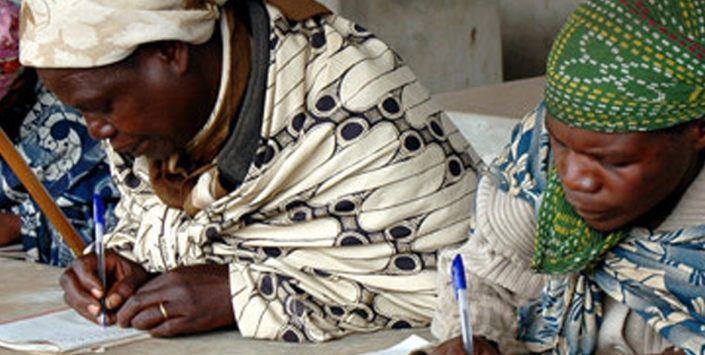
International Women’s Day 2024
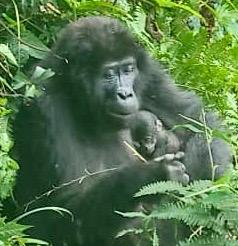
Mountain gorilla baby born to Bikingi group
The Bikingi mountain gorilla group has welcomed its newest member – a new-born baby. Rangers patrolling Bwindi Impenetrable Forest National…
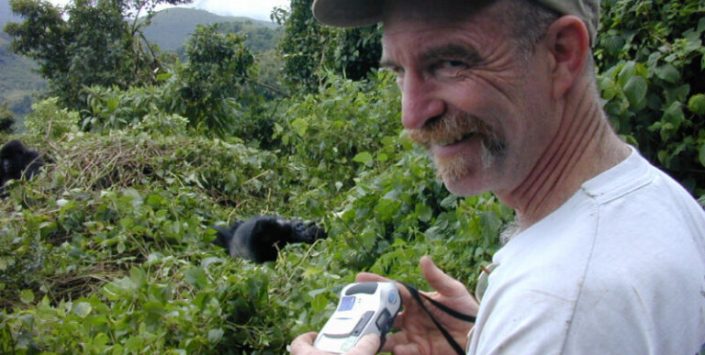
Pioneering Gorilla Doctor Mike Cranfield
The Gorilla Organization joins the whole of the conservation community in mourning the loss of Dr Mike Cranfield, the visionary…
The Gorilla Organization has heralded the new BBC documentary “Silverback” as a powerful examination of efforts to save an endangered species in the midst of ongoing conflict and insecurity.
The 90-minute long film, produced by Off the Fence, follows award-winning wildlife cameraman Vianet Djenguet as he documents a gruelling but vital mission to ‘habituate’ the notoriously protective silverback Mpungwe in the Kahuzi Biega National Park in eastern DR Congo. Earning the 250kg gorilla’s trust was an essential step for getting his whole family used to the presence of humans, beginning with researchers and rangers. Both Djenguet and Mpungwe know what is at stake. A native of the region, the cameraman has seen first-hand the misery caused by continuous wars between 1996 and 2003. The silverback, meanwhile, was orphaned in 1996, as militia killed gorillas for bushmeat. The numbers of eastern lowland gorillas living in the National Park plummeted from around 630 to just 170 today.
Gorilla Organization Director Jillian Miller says: “Kahuzi-Biega is a magical place and the gorillas living there are truly charismatic, with their characteristically thoughtful expressions and strong family ties. The Silverback documentary is a stunning homage to the region and a powerful testimony to the rangers and conservationists fighting against the odds to keep gorillas safe.”
Habituation, or getting gorillas used to humans, is the first step towards introducing them to tourists. John Kahekwe, a long time friend and collaborator of the Gorilla Organization and contributor to the “Silverback” documentary, believes tourism has the potential to transform the lives of the communities living around Kahuzi-Biega while also providing a brighter future for the gorillas themselves.
However, for now, a thriving eco-tourism industry in Kahuzi-Biega remains a long way off as the region remains unstable. This makes the work of the Gorilla Organization as well as Kahekwe’s own Pole Pole Foundation, as vital as ever. As the documentary shows, poaching continues to be a major problem in the park, with snares left on the forest floor putting gorillas’ lives at risk. Community conservation projects, which tackled the root causes of poaching and habitat destruction, are the most effective way of keeping gorillas safe
ghjgjjg
